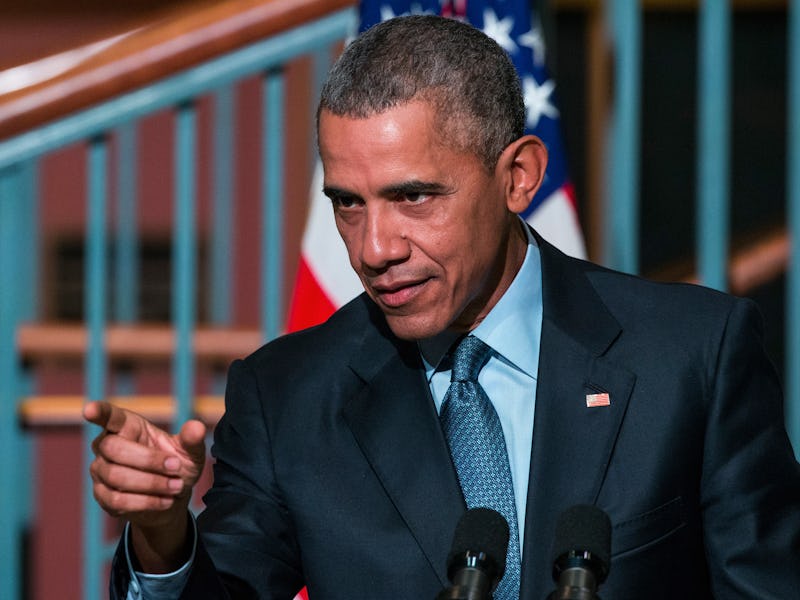Obama Pushes TechHire Program to Help Ex-Cons Get Coding Jobs
The TechHire program would offer fast-track coding training.

Prison-based vocational programs have traditionally focused on low-skill, poorly paid work — jobs that are predicted to be drastically cut as our society becomes increasingly computerized.
That is why President Barack Obama is pushing for people who have a criminal record to have access to resources that will help them succeed in the tech industry. On Monday, Obama announced that a series of additions will be made to his TechHire initiative that will expand access to tech jobs to the formerly incarcerated.
From Newark, New Jersey Obama announced that new programs focused on training incarcerated people in tech will be implemented in New Jersey, Connecticut, and Washington, D.C.
The TechHire program, which offers fast-track coding training and teaches strategies for getting that first job, will expand to Memphis and New Orleans with an explicit focus on supporting people with criminal records.
“We know that having millions of people in the criminal justice system without any ability to find a job after their release is unsustainable,” Obama said in his weekly address, prior to his New Jersey speech. “It’s bad for communities, and it’s bad for our economy.”
There have been a few programs designed to get ex-convicts into tech, such as the New York-based Defy Ventures and Stanford’s Project ReMade. But Silicon Valley doesn’t have a squeaky-clean track record when it comes to opening its arms to ex-cons — Apple was under fire last April for dismissing construction workers with criminal backgrounds from working on their Mothership HQ. The tech giant rescinded its decision and apologized less than a week later, but not before union leaders released a scathing letter to Apple CEO Tim Cook.
This incident, Fortune pointed out at the time, “pointed to the deep divide in Silicon Valley between people who work in the technology industry and those who don’t.” In more blunt terms, the fancy tech people and anyone else they consider an “other.”
As Wired UK acknowledged in its August 2015 issue, while the startup world has been criticized for making products that just the “techno fortunate are privileged enough to have,” formerly incarcerated people can offer a new perspective to tech.